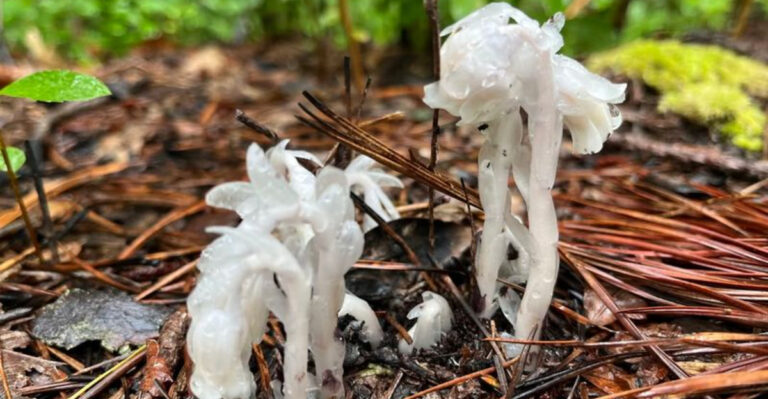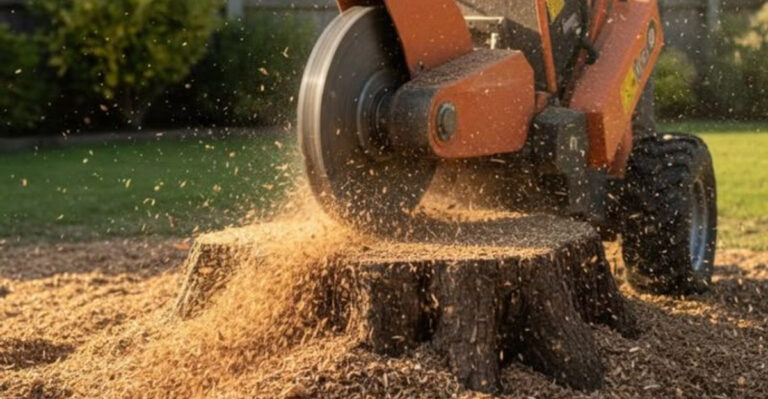Winter Rodent Activity Increases In Pennsylvania Backyards This December
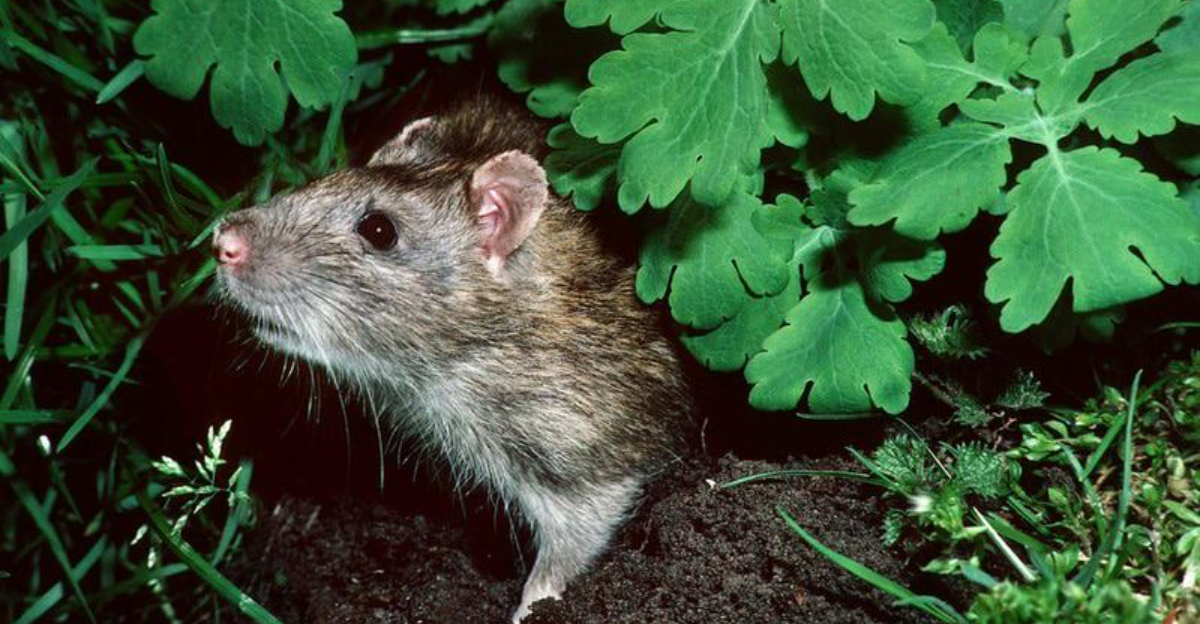
Cold nights push small creatures into motion, and backyards turn strangely busy as the month unfolds.
I notice fresh tracks under feeders, sudden rustles near sheds, and quick darts along fence lines as tiny residents hunt for food and a warm hideout.
The quiet of early dusk often breaks with sharp squeaks or the scrape of paws across dry leaves.
Every clue points to a clear uptick in activity that catches many homeowners off guard.
As temperatures drop, these determined visitors grow bold, test every boundary, and slip into any gap they can claim.
A bit of awareness now keeps them from gaining ground.
1. Seal Every Crack And Opening
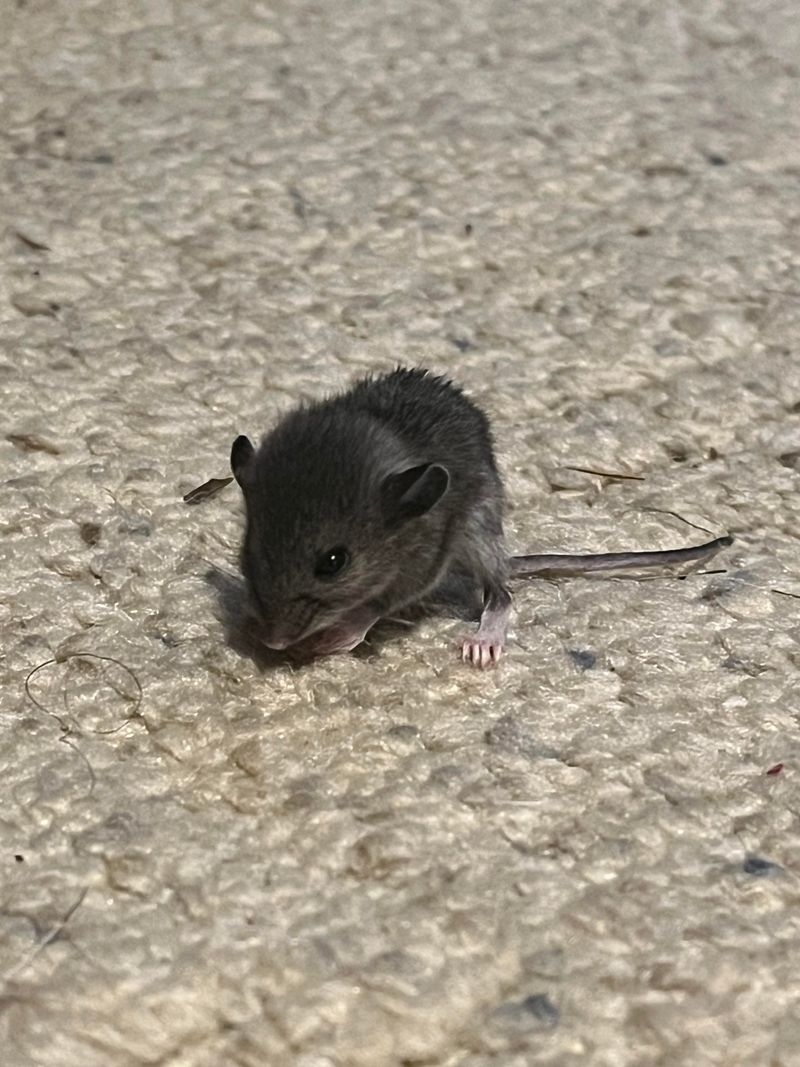
Mice can squeeze through openings as small as a dime, which makes your home vulnerable in ways you might not expect.
Walk around your house and look for gaps around pipes, vents, windows, and doors where rodents could sneak inside.
Steel wool works great for plugging small holes because rodents cannot chew through it easily.
You can also use caulk or expanding foam for sealing cracks in your foundation or siding.
Pay special attention to areas where utility lines enter your home.
Pennsylvania winters push rodents to find shelter quickly, so they will test every possible entry point.
Garage doors often have gaps at the bottom that need weather stripping replaced.
Basement windows with broken screens or loose frames are also common entry points.
Check your attic vents and chimney caps too, as squirrels and mice love these spots.
Even the smallest opening can become a highway for hungry rodents seeking warmth.
Spending time sealing these gaps now will save you from bigger headaches later when rodents have already moved in and started nesting inside your walls.
2. Remove Outdoor Food Sources
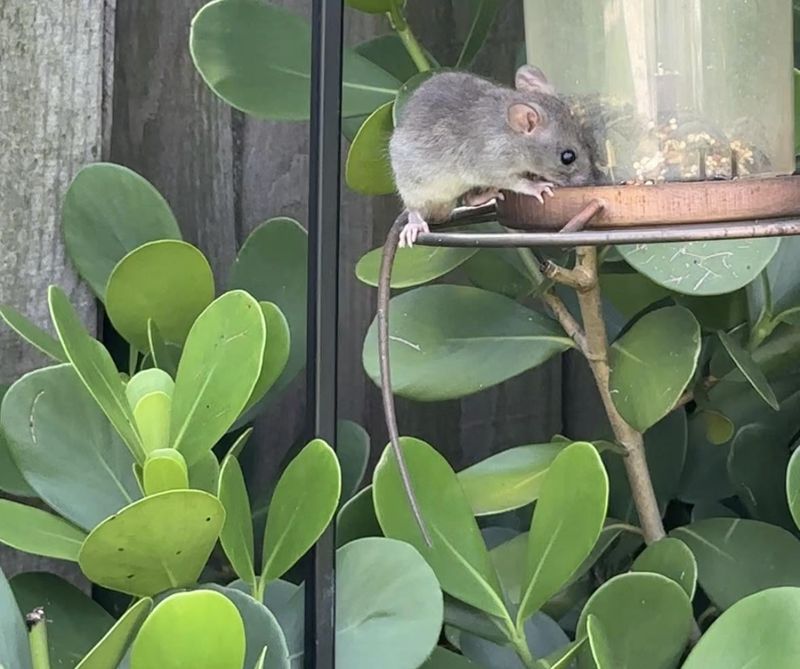
Bird feeders might seem harmless, but they create an all-you-can-eat buffet for rodents throughout winter months.
Seeds that fall to the ground attract mice, rats, and other unwanted visitors to your backyard.
Consider taking down feeders during December or switching to feeders that catch fallen seeds.
Pet food left outside is another major attraction for hungry rodents searching for easy meals.
Always bring pet bowls inside after feeding time, and never leave food sitting out overnight.
Garbage cans should have tight-fitting lids that rodents cannot pry open.
Fruit trees and vegetable gardens also need attention before winter fully sets in across Pennsylvania.
Pick up fallen apples, pears, or other produce that might be rotting on the ground.
Compost piles should be properly contained in sealed bins rather than open heaps.
Even decorative corn stalks and pumpkins left over from fall can feed rodent populations.
Clean up your yard thoroughly and store any animal feed in metal containers with secure lids.
Making your backyard less appealing to rodents means they will search elsewhere for food instead of settling near your home.
3. Trim Trees And Shrubs Away

Overhanging branches create perfect bridges for rodents to reach your roof and attic spaces with ease.
Squirrels and rats are excellent climbers who will use tree limbs to access your home from above.
Trim branches back at least six to eight feet from your house.
Shrubs planted too close to your foundation provide hiding spots and protection for rodents moving around your property.
These dense plantings give mice and rats cover from predators while they search for entry points into your home.
Create a clear zone of at least two feet between plantings and your foundation.
Ivy and other climbing vines on exterior walls give rodents an easy path upward to second-story windows and roof areas.
Remove these vines or keep them trimmed back significantly during winter months when rodent activity increases.
Woodpiles stacked against your house are basically rodent apartments waiting to be occupied by cold creatures.
Move firewood at least twenty feet away from your home and keep it elevated off the ground.
Pennsylvania’s harsh December weather drives rodents to seek any available shelter, so eliminating these convenient hiding spots makes your property less attractive to them.
4. Store Firewood Properly

Stacking firewood directly against your house is like rolling out the welcome mat for rodents looking for winter homes.
Mice, rats, and chipmunks love burrowing into woodpiles where they find warmth, protection, and easy access to your home’s exterior walls.
Keep your firewood stored at least twenty feet away from your house and raised off the ground on pallets or racks.
This distance and elevation make it harder for rodents to nest comfortably and then migrate into your living spaces.
Cover the top of your woodpile with a tarp, but leave the sides open for air circulation.
Only bring inside the amount of firewood you plan to burn within a day or two at most.
Storing large quantities indoors can introduce insects and rodents directly into your home without you realizing it until problems develop.
Check each log before bringing it inside to make sure no creatures are hiding in the bark or crevices.
Pennsylvania winters mean you will be using lots of firewood, but proper storage practices prevent your cozy fires from coming with unwanted furry guests.
Inspect your woodpile regularly for signs of nesting or tunneling activity throughout December and winter months.
5. Install Door Sweeps And Weather Stripping

Gaps under doors are superhighways for mice and rats entering your home during cold Pennsylvania nights.
Even a small space of just a quarter-inch provides enough room for a mouse to slip inside where it is warm and safe.
Door sweeps attach to the bottom of exterior doors and create a seal that blocks rodents while also improving energy efficiency.
These inexpensive strips are easy to install and make an immediate difference in keeping pests out.
Check all exterior doors including those leading to garages, basements, and sheds.
Weather stripping around door frames and windows wears out over time and needs replacement every few years.
Old, cracked, or missing weather stripping leaves openings that rodents will exploit when temperatures drop in December.
Run your hand along door edges to feel for drafts indicating gaps that need attention.
Garage doors often have the biggest gaps because they see heavy use and the rubber seals deteriorate quickly.
Replace worn garage door seals with new rubber strips that create a tight seal against the floor.
Taking these simple steps prevents rodents from finding easy entry points while also lowering your heating bills throughout winter by keeping cold air outside where it belongs.
6. Clean Gutters And Downspouts

Clogged gutters filled with leaves and debris create perfect nesting spots for rodents right on your roofline.
Mice and squirrels will build homes in this organic material where they stay protected from Pennsylvania’s winter weather while being just inches from potential entry points into your attic.
Clean your gutters thoroughly before December arrives and temperatures make this job miserable to complete.
Remove all leaves, twigs, and accumulated muck that could attract or shelter rodents.
Make sure downspouts drain properly and carry water away from your foundation.
Standing water in clogged gutters also provides a drinking source for rodents during winter when other water sources freeze solid.
Installing gutter guards can prevent future buildup while making maintenance much easier throughout the year.
Check for any damage to your gutter system that creates gaps where rodents might squeeze through to reach your roof or attic.
Repair loose sections and make sure gutters are securely attached to your house.
While you are up there, inspect your roof for damaged shingles or holes around vents that need fixing.
Clean, well-maintained gutters do more than protect your home from water damage; they also eliminate convenient rodent habitats that bring pests too close to your living spaces.
7. Set Up Traps Before Problems Start

Waiting until you hear scratching in your walls means rodents have already established themselves inside your home.
Being proactive with traps in key locations catches the first scouts before they can signal others that your house is a good place to nest.
Place snap traps or live traps in areas where rodents typically travel, such as along walls, behind appliances, and in corners of basements or garages.
Bait them with peanut butter, which rodents find irresistible and which sticks better than cheese to trap triggers.
Check traps daily and dispose of any caught rodents promptly and safely according to local Pennsylvania regulations.
Reset traps immediately because where there is one rodent, there are usually more following the same paths.
For those uncomfortable with these traps, live traps offer a humane alternative that lets you release captured rodents far from your property.
Electric traps provide another option that eliminates quickly and cleanly without the mess of traditional snap traps.
Position multiple traps rather than just one or two, as rodents are cautious and may avoid the first trap they encounter.
Starting your trapping program in early December before rodent populations explode gives you the best chance of keeping your home pest-free all winter long.
8. Eliminate Water Sources
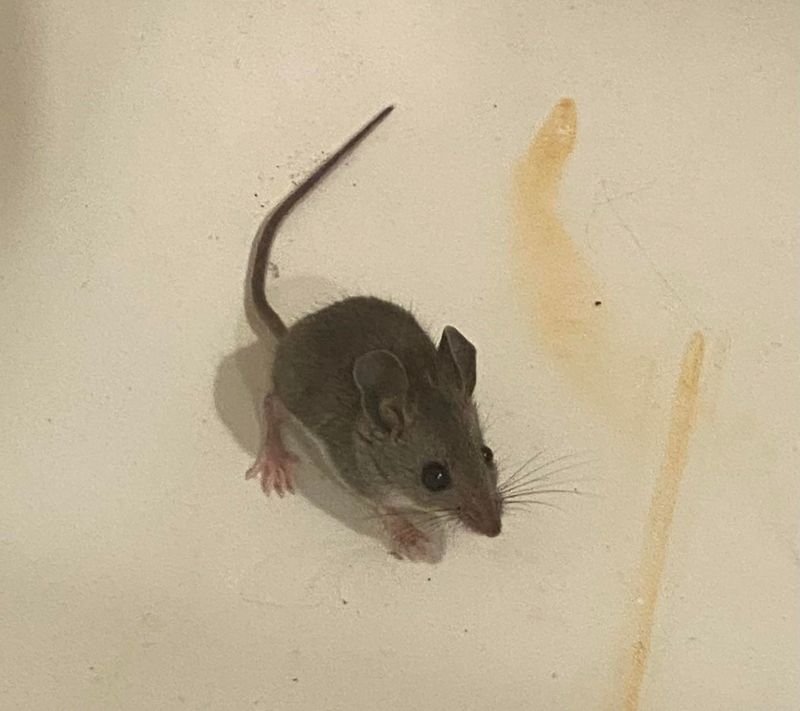
Rodents need water just as much as they need food and shelter to survive Pennsylvania’s harsh winter conditions.
Leaky faucets, dripping pipes, and standing water in your yard or basement attract thirsty mice and rats searching for reliable water sources.
Fix any plumbing leaks inside and outside your home, no matter how small they seem.
That slow drip under your kitchen sink provides enough water for an entire family of mice.
Check exposed pipes in basements, crawl spaces, and garages for condensation or leaks that need repair.
Pet water bowls left out overnight become rodent watering holes, so bring them inside before bed.
Empty and store birdbaths during winter months when they are not needed and would only serve rodent populations.
Make sure your gutters and downspouts drain properly so water does not pool near your foundation.
Dehumidifiers in damp basements reduce moisture that attracts rodents while also preventing mold growth.
Fix any drainage issues in your yard that create puddles or muddy areas where water collects.
By eliminating easy access to water, you make your property much less appealing to rodents who will search for more accommodating locations to spend December and the rest of winter.
9. Use Natural Deterrents
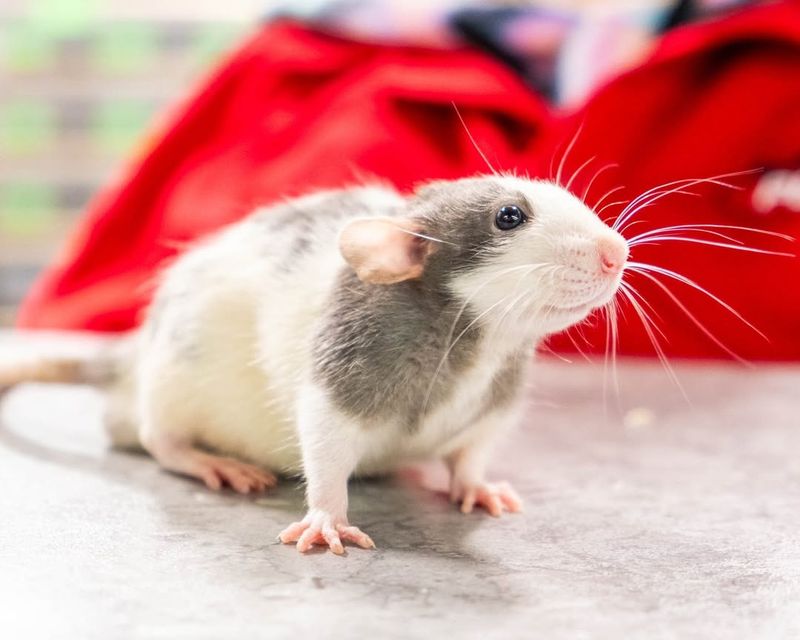
Peppermint oil is a natural rodent repellent that smells wonderful to humans but drives mice and rats away from treated areas.
Soak cotton balls in pure peppermint essential oil and place them in areas where you have seen rodent activity or suspect entry points.
Replace the cotton balls every few weeks as the scent fades, especially in areas with good air circulation.
You can also spray diluted peppermint oil around the perimeter of your home, though you will need to reapply after rain or snow.
Used cat litter placed in containers near potential entry points can deter rodents who fear predators.
The scent signals danger and often convinces rodents to search for safer locations away from your property.
Just be sure to use covered containers so the smell does not become unpleasant for your family.
Steel wool stuffed into small holes works both as a physical barrier and a deterrent since rodents dislike its texture and cannot chew through it.
Ultrasonic devices that emit high-frequency sounds claim to repel rodents, though results vary and some Pennsylvania homeowners report success while others see no difference.
Natural deterrents work best when combined with other prevention methods rather than relied upon as your only defense against winter rodent invasions.
10. Inspect And Clean Storage Areas
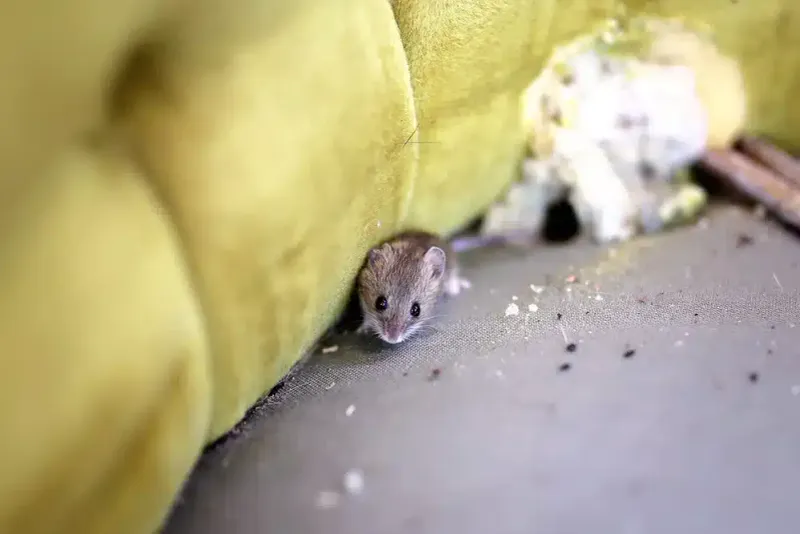
Garages, attics, basements, and sheds become prime real estate for rodents when December temperatures plunge across Pennsylvania.
These spaces often contain boxes, old furniture, and stored items that create perfect hiding spots and nesting materials for mice and rats.
Go through your storage areas and organize items in sealed plastic containers rather than cardboard boxes that rodents can easily chew through.
Elevate stored items off the floor using shelving units, which makes it harder for rodents to access them and easier for you to spot signs of activity.
Throw away unnecessary clutter that only provides more places for rodents to hide and build nests.
Old newspapers, fabric scraps, and paper products are favorite nesting materials that you should remove or store properly.
Look for droppings, gnaw marks, or shredded materials that indicate rodents have already moved into your storage spaces.
Clean these areas thoroughly with disinfectant, wearing gloves and a mask to protect yourself from diseases rodents can carry.
Install bright lighting in dark corners of storage areas since rodents prefer shadows and may avoid well-lit spaces.
Regular inspections throughout winter help you catch rodent problems early before small issues become full-blown infestations requiring professional pest control services.




